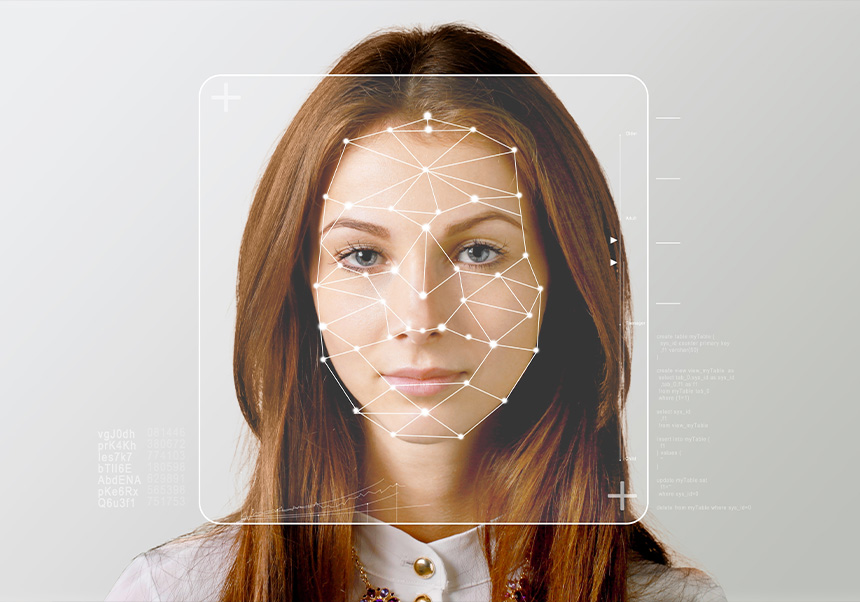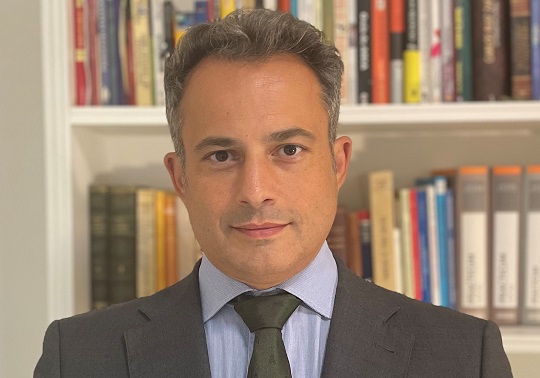Technological advance in personal identifications by Spanish law enforcement forces and its impact in the protection of fundamental rights.
Pablo Gallego Rodríguez
Professor of Constitutional Law. Faculty of Law and Business and Economic Sciences.
The concern about indubitable recognition of people has been present in Spain throughout history. In fact, at the beginning of the 19th century, identity documents and internal passports already included a physical description of the holder that authorised them to travel within the Spanish territory.
In this sense, the regulatory origin of anthropometric identification can be traced back to the Royal Decree of 14 September, 1896. In order to forbid cunning criminals from evading the law, by virtue of said decree, a regular anthropometric identification system was created in the Spanish prisons. This system aimed at shortening trials, catching criminals by trade and cutting down expenses.
The adopted anthropometric identification system was called the Bertillon system. Instituting this system was no easy task, and the process presented several difficulties – mainly a lack of resources and qualified workers.
Thus why the identification of a person by physical biometrics, instead of by their knowledge or property, has always been closely related to the concept of security.

Over the years, identification processes have improved thanks to powerful tools such as DNA analysis, computing, handwriting analysis and graphonomic analysis of signatures.
The introduction of IT (telephone recording and tapping) caused a significant transformation on this process.
Nevertheless, all the aforementioned feels trivial when compared to the birth of biometrics and artificial intelligence, which represent a revolution that is even more influential than the one that caused Johannes Gutenberg’s printing press at the time.
Identification processes carried out by Spanish law enforcement forces are currently regulated according to article 16 of the Organic Law 4/2015, 30 March (Spanish Citizens’ Security Law) titled ‘person identification’.
This law has been subject of intense legal and doctrinal debates, starting from the controversial exhaustive procedure that it underwent. The main amendments tabled reflected concern about the balance between the effectiveness of the identification process, and the security of the protection of rights and police transparency.
This law ended up not being well received but, despite its large opposition and several proposed amendments, it remains applicable and mostly unchanged.
This evinces the fact that citizens’ security remains an unresolved sensitive issue in the controversial Spanish political agenda.
We consider that the 2015 law cannot stay in force in its current state. Article 16, relative to personal identification, presents shortcomings that require an exhaustive revision.
The intricate nature of this issue calls for a rigorous analysis and a perspective which involves different sectors of society. Both social groups, which represent diverse citizens’ voices and worries, and police forces, who offer a practical view on the reality of operations and the challenges they face, must be included among these sectors.
This matter becomes even more complicated in such an interconnected environment with unprecedented access to information. Modern biometrics and facial recognition systems, in conjunction with Artificial Intelligence, can be interpreted as a threat to our freedom, rather than as a tool that protects it.
Ethnic profiling is a clear example of this. It can be defined as the law enforcement act of assessing certain interventions based on racial or ethnic stereotypes, instead of on the behaviour per se.
This practice stems form the false idea that certain racial or ethnic traits might indicate a greater tendency to commit crimes, which can eventually lead to arbitrary identity checks, increased surveillance in areas inhabited by minorities and disproportionate searches.

In our social context, the increase in foreign population since the late 1900s has increased cultural diversity. Nevertheless, this cultural kaleidoscope has been subjected to scrutiny and negative stereotypes rooted in fear and ignorance, which in turn hurts minorities.
It is clear that we are dealing with a controversial topic in need of an unselfish, profound and constructive dialogue. This would lead us to adopt a legislation that finds balance between security and individual freedom, in an environment in which the already omnipresent AI should be a valuable ally.
Our partially digital and technological society is transitioning into a fully digital one.
Since the current regulatory framework fails to address the new sociotechnological realities, our legal system urgently needs to be reinvented to match the current global and highly technological reality. Biometrics, in combination with Artificial Intelligence, are a key element of the security-freedom system, and they should contribute to the judicial procedures, but at the same time respect individual freedom and rights.
Artificial Intelligence promises to be a valuable ally in the scientific field, but it also has great potential in areas such as identification processes, counter-terrorism or gender-based violence. Particularly in the latter, AI could increase predictability and contribute towards the adoption of precautionary measures to protect victims.
However, uncontrolled use of these systems entails a high risk. While technology brings advantages, especially in the field of national and public security, it is pivotal to maintain the necessary precautions not only to avoid risk of discrimination, but also for our fundamental rights protection system to not suffer unprecedented effects, hence ensuring that identification systems are fair and inclusive for everyone.

Professor of Constitutional Law. Area of Constitutional law. Department of Public and Economic Law.
Faculty of Law and Business and Economic Sciences.
University of Cordoba


